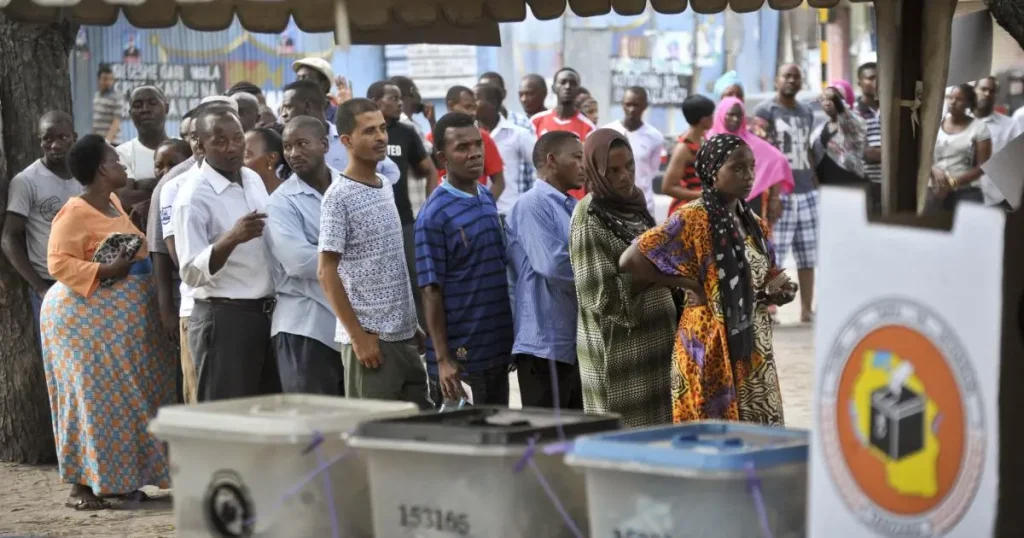Tanzania has long presented itself as a bastion of democracy in East Africa, particularly since the reintroduction of multiparty politics in the early 1990s.
However, a closer examination reveals that pseudo-democratic practices have repeatedly surfaced, especially during elections for local government, villages, and hamlets.
These elections often expose systemic flaws that undermine the principles of democracy while maintaining the outward appearance of electoral processes.
Controlled Elections
In Tanzania, local government elections are often marred by irregularities, such as the exclusion of opposition candidates, voter intimidation, and result manipulation.
For example, in the 2019 local elections, opposition parties like CHADEMA and ACT-Wazalendo boycotted the polls, citing widespread disqualification of their candidates.
These actions ensured that the ruling party, Chama Cha Mapinduzi (CCM), faced minimal competition, creating a one-sided electoral process that lacked legitimacy.
Such controlled environments limit voters’ ability to choose leaders freely, a hallmark of pseudo-democracy.
Restricted Civil Liberties
Freedom of expression, assembly, and association are essential for meaningful elections. However, these liberties are often curtailed in Tanzania, especially during elections.
Authorities frequently use laws like the Cybercrimes Act to silence dissenting voices online, while public rallies by opposition parties are restricted under the guise of maintaining public order.
For instance, in the lead-up to the 2020 general elections, the opposition was denied permits to campaign in certain areas, giving the ruling party an unfair advantage.
READ RELATED: Are Tanzania’s Local Elections Truly Democratic? Shocking Statistics Raise Questions
This suppression of civil liberties creates an uneven playing field and weakens the democratic process.
Dominance of One Party
Tanzania’s political landscape remains heavily dominated by CCM, which has ruled since independence. The party’s extensive control over state resources, media, and security apparatus gives it a disproportionate advantage during elections.
In local government elections, CCM often secures overwhelming victories, sometimes winning unopposed due to the disqualification of opposition candidates.
This dominance undermines pluralism and reinforces the pseudo-democratic structure, where elections exist primarily to validate the ruling party’s power rather than reflect the people’s will.
Lack of Rule of Law
Tanzania’s judiciary and electoral commissions have faced accusations of bias toward the ruling party. For example, during elections, opposition parties have reported instances where legal appeals regarding candidate disqualifications or election irregularities were dismissed without due process.
The perception that legal systems are aligned with the ruling elite erodes public trust in electoral integrity, further entrenching pseudo-democratic practices.
Manipulation of Democratic Institutions
Institutions like the National Electoral Commission (NEC) and the Local Government Election Boards are often accused of lacking independence.
Their composition, largely appointed by the executive, raises concerns about impartiality. For instance, allegations of vote-stuffing, delayed ballot delivery in opposition strongholds, and tampering with results are common during local elections.
Such manipulation ensures that democratic institutions serve as tools to legitimize the ruling party’s authority rather than protect voters’ rights.
Comparative Examples from Other Nations
Similar pseudo-democratic practices can be observed in countries like Zimbabwe, where ZANU-PF dominates the political landscape by suppressing opposition and controlling electoral processes.
In Uganda, President Museveni’s government frequently restricts political opponents’ activities while maintaining a facade of multiparty democracy.
These examples underscore the prevalence of pseudo-democracy, where elections become rituals devoid of substance.
While Tanzania’s electoral processes, such as today’s local government elections, give the appearance of democracy, systemic issues reveal a deeper reality of pseudo-democratic governance.
Controlled elections, restricted freedoms, one-party dominance, and compromised institutions collectively undermine genuine political participation.
Reforms are needed to ensure electoral transparency, strengthen institutions, and uphold civil liberties for Tanzania to transition from pseudo-democracy to true democracy.
Elections can only genuinely reflect the people’s will rather than serve as a mechanism to entrench existing power structures.

